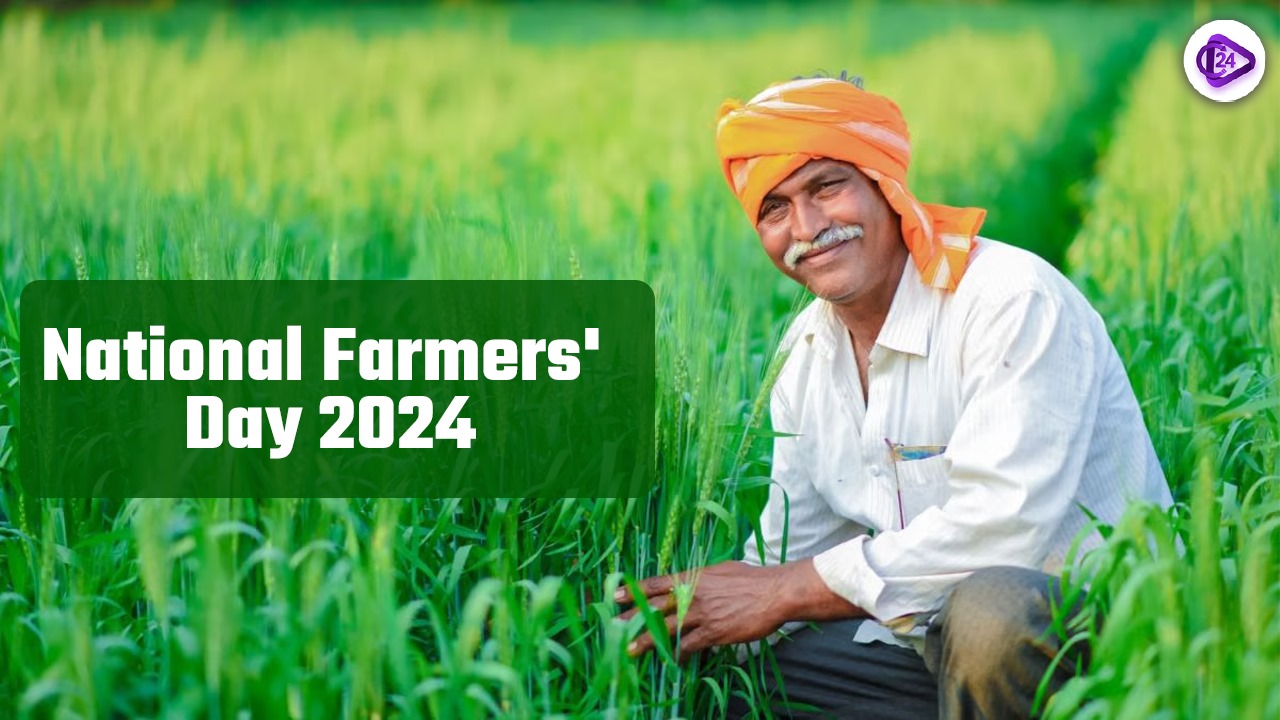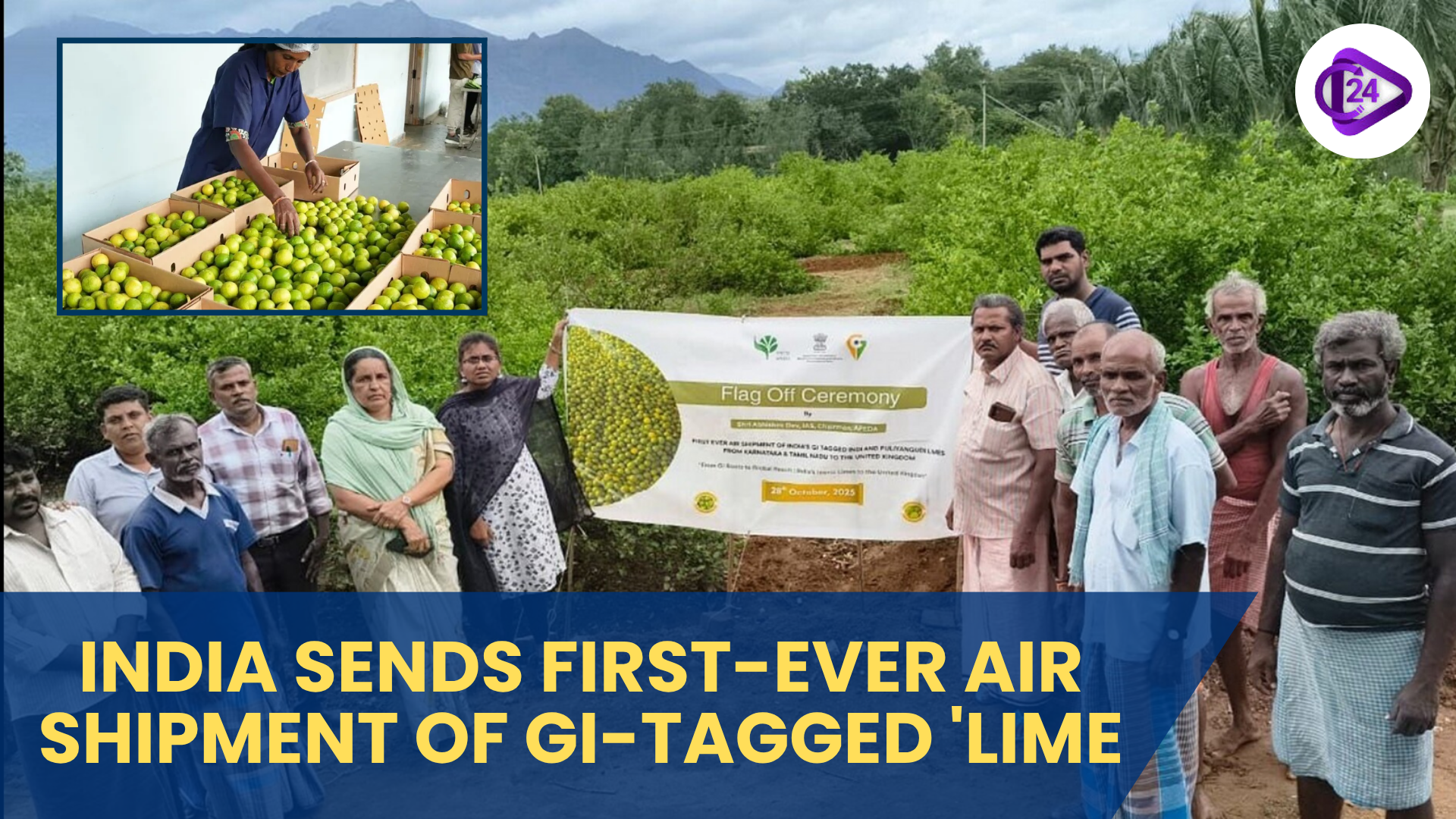
When we celebrate National Farmers’ Day on December 23, 2024, it is time to recall the valuable contribution of farmers to the Nation. Falling on the birthday of the fifth PM of India, Shri Chaudhary Charan Singh, National Farmers’ Day is a day that farmers are honored and remembered for their responsibilities towards the formation of the nation. That is why they are the ‘Annadatas’; the people who provide sustenance, those who construct rural societies, and the unknown relishers of all our successes.
Farmer's Role in the Development of the Country
Agriculture industry remains a strong pillar of the Indian economy providing a living to almost half of the country’s population and has a GVA of 17.7%. India’s farmers, already operating on more than 54% of the country’s geographical area, and a cropping density of 155.4%, are the guardians of food security and poverty alleviation. The country successfully met the food requirements in 2023-24 achieving record foodgrain production of 332.2 million tonnes accosting earlier records and the resultant credit goes to hardworking Indian farmers and stakeholders.
Government schemes that help farmers are as follows:
Over the last few years, the Indian government has launched a number of its huge schemes to boost of the agriculture industry. So, the union government has launched the targeted operations:
-
Pradhan Mantri Kisan Samman Nidhi (PM-KISAN) has finally helped millions of farmers by extending operational financial assistance.
-
Pradhan Mantri Fasal Bima Yojana (PMFBY) has provided insurance coverage against crop loss due to natural disasters.
-
Pradhan Mantri Kisan Maandhan Yojana (PM-KMY) ensures farmers' social security in the respective future.
-
Mission for Self-Relevance in Edible Oils
-
National Mission on Edible Oils – Oilseeds: Seeks to increase production of oilseeds domestically at a cost of ₹10,103 crores for requiring importless edible oils.
-
-
Natural Farming Promotion
-
National Mission on Natural Farming: The Aim is to support chemical-free natural farming adopting a theme with a budget ₹ 2,481 crores.
-
Budget and Record Agricultural Output
India set a record for foodgrain production at 332.2 million tonnes in 2023-24 to feed the Nation for several years owing to farmers’ patience and hard work. The expenditure under this head has only gone up from ₹21,933 crore in 2013-14 to ₹1,22,528 crore in 2024-25 to ensure that farmer’s income and productivity rise through better physical infrastructure. But this will not be enough and in general, it will not serve the purpose until farmers are educated, can have access to modern technology, and have cthe apacity to put up their concerns before decision-making authorities.
New Technologies
-
Namo Drone Didi Scheme: Offers drones for agricultural rental services to women self-help groups through Kshs 5 million grant.
-
Soil Health Card Scheme: Intensifies the rational use of fertilisers and the improvement of the soil.
-
Farmer Producer Organizations (FPOs): Especially in market access initiatives to support collective farming among farmers and other individuals.
-
Kisan Kavach: anti-pesticide bodysuit for farmers.
-
Digital Agriculture Mission: Specialised in using Information Technology to assist agriculture.
-
Clean Plant Programme: Improves horticulture production as it has disease-free plant materials that are essential for production.
-
Credit Guarantee Scheme for e-NWR-Based Financing: Provides financing to farmers after the harvest by using receipts from warehouses.
Such schemes and the livestock and digital agriculture mission have the potential to take agriculture to a more organized level with minimum use of inputs. These programs could help to close the gap between conventional farming and the rich possibilities opening up near-future agriculture.
A Call for Holistic Reform
National Farmers’ Day is not a holiday aimed solely at celebrating farmers, but at reminding the need to reconsider the agricultural industry as a whole. Such reforms cannot only be financial, but financial support is crucial for these reforms. Farmers require a comprehensive approach that encompasses the following:
-
Increased Investment in Rural Infrastructure: Upgrading the roads, preservative structures, and water supplies can help farmers to be more profitable because they cost less.
-
Market Access and Fair Pricing: It is equally important the farmers have access to the large markets and sell their produce at a good/marketable price. There is potential in achieving this through the use of various e-channels and enhanced regulatory systems.
-
Sustainability and Climate Resilience: With climate change becoming an increasingly real danger to agricultural production, supporting sustainable farming practices and preparing for, and mitigating the effects of, climate variations is vital for the future of agriculture in India.
-
Farmer Education and Empowerment: The technical advancement knowledge and training and facility of knowledge extension services can enhance better utilization of farm inputs and marketing by enhancing factor through their farms investment protection.
Conclusion
National Farmers Day should not only be a day that we celebrate the contribution of farmers in food production but also the day when we put more effort in enhancing the welfare of these essential stakholders. The contribution of the nation usually depends on our farmers and it is our challenge to ensure that they improve their standards. They are not mere producers of food crops; they are the guardians of India’s food security, the pillars of rural growth and the very cornerstone of the structure that will define India’s progress in years to come. We need to recognize them not only as employees who are part of the workforce but as key players in the development of this nation, leaving them empowered, protected and very much the anchor of the new India narrative.



 India’s GI-Tagged Limes Reach UK in Landmark Agricultural Export Milestone
India’s GI-Tagged Limes Reach UK in Landmark Agricultural Export Milestone






